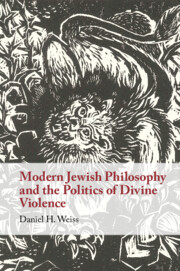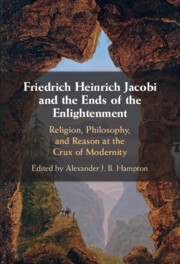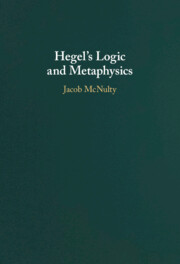117 results
Chapter 1 - The Essence of ‘The Tragic’
-
- Book:
- Choral Tragedy
- Published online:
- 25 April 2024
- Print publication:
- 02 May 2024, pp 1-20
-
- Chapter
- Export citation
Introduction - Time, Recognition, and the Worlds of Yeats’s Work
-
- Book:
- Yeats, Revival, and the Temporalities of Irish Modernism
- Published online:
- 11 April 2024
- Print publication:
- 18 April 2024, pp 1-23
-
- Chapter
- Export citation
5 - Genealogy as Double Agent
-
- Book:
- What Is a Classic in History?
- Published online:
- 15 February 2024
- Print publication:
- 22 February 2024, pp 258-299
-
- Chapter
- Export citation
Chapter 1 - V. S. Naipaul Aesthetic Ideology and World Literature
-
- Book:
- V. S. Naipaul and World Literature
- Published online:
- 01 February 2024
- Print publication:
- 08 February 2024, pp 13-29
-
- Chapter
- Export citation
Subjectivity and Dialectic: Hegel in Dialogue with Gadamer
-
- Journal:
- Dialogue: Canadian Philosophical Review / Revue canadienne de philosophie , First View
- Published online by Cambridge University Press:
- 23 October 2023, pp. 1-25
-
- Article
- Export citation
14 - The Sophists in the History of Philosophy
- from Part III - Receptions
-
-
- Book:
- The Cambridge Companion to the Sophists
- Published online:
- 23 December 2023
- Print publication:
- 19 October 2023, pp 403-437
-
- Chapter
- Export citation
Chapter 19 - The Left Hand of Darkness (1969): Ursula K. Le Guin
- from Part III - Case Studies
-
-
- Book:
- The Cambridge Companion to the Twentieth-Century American Novel and Politics
- Published online:
- 07 October 2023
- Print publication:
- 12 October 2023, pp 285-296
-
- Chapter
- Export citation
Chapter 5 - The Apocalypse of Hope
-
- Book:
- German Philosophy and the First World War
- Published online:
- 30 March 2023
- Print publication:
- 20 April 2023, pp 153-185
-
- Chapter
- Export citation
Chapter 2 - On the Nature of Constitutions
-
- Book:
- Hegel and the Representative Constitution
- Published online:
- 13 April 2023
- Print publication:
- 20 April 2023, pp 52-98
-
- Chapter
- Export citation
Chapter 4 - Debating the Two-Chamber System
-
- Book:
- Hegel and the Representative Constitution
- Published online:
- 13 April 2023
- Print publication:
- 20 April 2023, pp 129-166
-
- Chapter
- Export citation
Chapter 6 - The Road to Damascus in the Age of Capitalism
-
- Book:
- German Philosophy and the First World War
- Published online:
- 30 March 2023
- Print publication:
- 20 April 2023, pp 186-225
-
- Chapter
- Export citation
Chapter 1 - The Constitutional Question in Post-Napoleonic Germany
-
- Book:
- Hegel and the Representative Constitution
- Published online:
- 13 April 2023
- Print publication:
- 20 April 2023, pp 23-51
-
- Chapter
- Export citation
Chapter 5 - The Representation of Interests
-
- Book:
- Hegel and the Representative Constitution
- Published online:
- 13 April 2023
- Print publication:
- 20 April 2023, pp 167-208
-
- Chapter
- Export citation
1 - The Lyric Impulse: Musicological and Methodological Contexts
- from Part I - Contexts
-
- Book:
- Schubert's String Quartets
- Published online:
- 13 April 2023
- Print publication:
- 20 April 2023, pp 19-64
-
- Chapter
- Export citation
Chapter 3 - The Distribution of Power
-
- Book:
- Hegel and the Representative Constitution
- Published online:
- 13 April 2023
- Print publication:
- 20 April 2023, pp 99-128
-
- Chapter
- Export citation
6 - Poul Martin Møller’s Criticism of Hegelianism and the Danish Discussion of Nihilism
-
- Book:
- A History of Nihilism in the Nineteenth Century
- Published online:
- 10 March 2023
- Print publication:
- 30 March 2023, pp 173-200
-
- Chapter
- Export citation

Modern Jewish Philosophy and the Politics of Divine Violence
-
- Published online:
- 30 March 2023
- Print publication:
- 06 April 2023
11 - Jacobi and Kierkegaard
- from Part III - Jacobi and the Revival of Socraticism: The Muenster Circle and Existentialism
-
-
- Book:
- Friedrich Heinrich Jacobi and the Ends of the Enlightenment
- Published online:
- 09 February 2023
- Print publication:
- 16 February 2023, pp 200-224
-
- Chapter
- Export citation

Friedrich Heinrich Jacobi and the Ends of the Enlightenment
- Religion, Philosophy, and Reason at the Crux of Modernity
-
- Published online:
- 09 February 2023
- Print publication:
- 16 February 2023

Hegel's Logic and Metaphysics
-
- Published online:
- 26 April 2023
- Print publication:
- 26 January 2023



